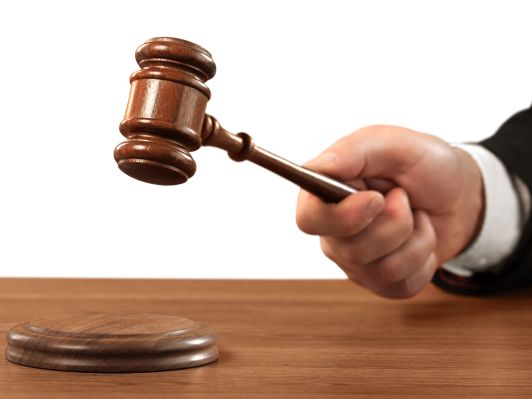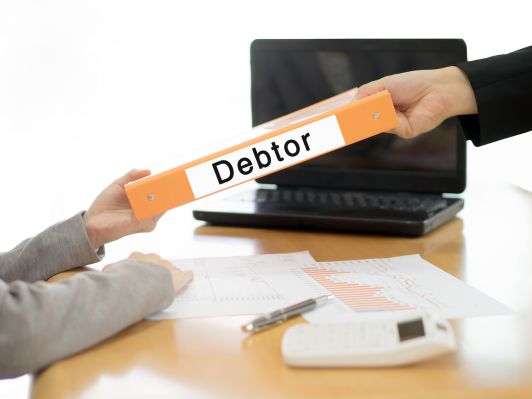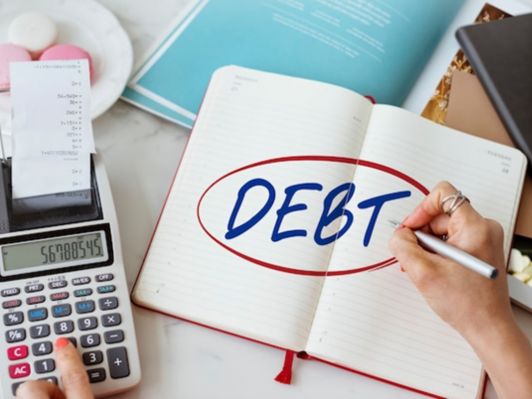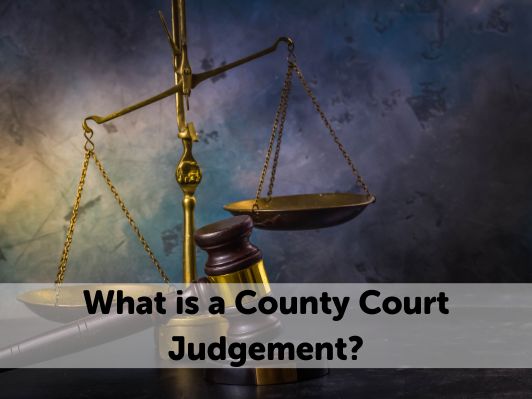Have you ever heard the term County Court Judgment (CCJ)? Have you wondered what it means for your financial world? Well, get ready to unravel any doubts surrounding CCJs.
Understanding CCJs is paramount for a seasoned financial planner. It’s really important someone just embarking on this journey too. Let’s break down the complexities and learn to navigate this financial terrain.
What is a County Court Judgment (CCJ)?
A county court judgment (CCJ) is a court order issued by the County Court in England and Wales. It arises from a dispute about money owed. Often these result from defaulted payments or unresolved debts.
A person or organisation can sometimes fail to repay their debt. Their creditors can start legal proceedings and file a county court claim form. The court assesses the case. If valid, the court issues a judgment. It specifies the judgment date, debt amount, and repayment terms for the debtor.
How CCJs are Issued in the UK?

Understanding how County Court Judgments are issued is vital for managing your finances. Let’s understand the process. We’ll shed light on how CCJs exist within the legal framework of the UK.
1. Initiating the CCJ Process
The process starts when a creditor issues a letter of claim. They do this to the person / entity that owes them money. This outlines the intent to pursue legal action. The creditor files a county court claim form. This details the debt and the reasons for the claim.
2. The Debtor’s Response

Upon receiving the claim form, the debtor can respond to the debt claims. They do this by completing a reply form. This response involves admitting or denying the debt. If you admit it, you can propose a repayment plan. This step is critical in shaping the direction of the case.
3. Court Assessment and Judgment
The court evaluates the case. It considers the information provided by both parties. If the creditor wins the court issues a charging order. This will accompany a judgment following a thorough review. This determines the debt amount and repayment terms.
CCJ Consequences on Credit Reports
CCJs can cast a lasting shadow on your financial standing. This emphasises the need to grasp the implications of a credit report. Here’s how a CCJ can affect your financial journey in the UK.
1. Hitting Your Credit Score
A CCJ takes a toll on your credit score. It impacts your ability to secure credit and loans. Lenders view CCJs as signs of financial distress. This can make them cautious hesitating to extend credit.
2. Difficulty in Obtaining Credit
With a CCJ on your credit file, obtaining credit becomes challenging. Lenders may view you as a higher risk. This may mean credit applications are rejected. Or they could offer them at less favourable terms.
3. Lingering Impact
The impact of a CCJ can linger for up to six years. This impacts your creditworthiness during this period. It’s a long-term consequence. It necessitates proactive steps to mitigate its effect.
Steps to Address and Manage CCJs
A CCJ can challenge your financial health and creditworthiness. Facing a CCJ head-on and taking proactive measures can help mitigate its impact. It also paves the way for your financial recovery.
Let’s understand the essential steps to address and manage CCJs. These steps help ensure you can regain control of your financial destiny.
1. Acknowledge and Understand the CCJ
A county court claim form, once received, should never be ignored. Respond by completing the reply form and admitting or denying the debt. Understanding the specifics of the CCJ is crucial in formulating an appropriate course of court action.
2. Propose a Repayment Plan

If you admit to owing the debt, propose a repayment plan that aligns with your financial capabilities. Offer affordable monthly instalments and prove your commitment to settling the debt. Cooperation can prevent further legal actions and show your intent to resolve and pay the debt issue.
3. Seek Professional Advice
Consider consulting a financial advisor or a debt management agency. They can assess your financial situation and guide you in addressing the CCJ. They can help negotiate with creditors and create a viable repayment plan. This will ensure that you are on the right track towards resolving the debt.
4. Explore Debt Repayment Options
Research debt repayment options that suit your circumstances. Debt consolidation is one potential avenue. Negotiating for reduced settlements is another. You can also consider an Individual Voluntary Arrangement (IVA) as an alternative. Each option has its pros and cons. Evaluate them to determine the most appropriate one for your situation.
5. Satisfy the CCJ
Aim to meet the attachment of earnings CCJ by repaying the debt in full or according to the agreed-upon terms. This will mitigate the long-term impact on your credit file. Clear the debt and ensure your credit report marks the CCJ as “satisfied.” This signifies your commitment to fulfilling financial obligations.
6. Monitor Your Credit Report
Track your credit report regularly to confirm that your credit rating is accurate. Mistakes can happen, and ensuring correct information is vital. This is for your creditworthiness and financial standing.
7. Rebuild Your Credit
After addressing the CCJ and ensuring it’s satisfied, focus on rebuilding your credit. Make timely payments, keep a low credit utilisation ratio, and adhere to financial conduct guidelines. Over time, your credit score will improve, offering better financial opportunities.
8. Communicate with Creditors
Stay in communication with your creditors throughout the process. If you face difficulties adhering to the repayment plan, notify your creditors. They may be open to adjusting the terms to accommodate your financial situation.
9. Educate Yourself on Financial Management
Take this experience as an opportunity to enhance your financial literacy. Learn effective financial management and responsible credit usage to avoid future debt issues.
10. Plan for the Future
Develop a comprehensive financial plan to prevent a recurrence of similar situations. Build an emergency fund, manage your debts, and seek guidance when needed to secure a stable financial future.
Resolving CCJs and Credit Recovery

The UK has a staggering average debt of £65,756 per household, including mortgages. In the face of soaring household debt, addressing debt enforcement through CCJs is paramount. Reclaiming financial stability is the ultimate goal.
As of August 2023, people in the UK owed £1,846.5 billion. This is up by £35.1 billion from £1,811.4 billion at the end of august 2022. This illuminates the pressing need to navigate this financial terrain.
Addressing the CCJ: When confronted with a CCJ, the first crucial step is acknowledgement. Respond by completing the reply form and proposing a realistic repayment plan. Cooperation and transparency can impact the outcome of the debt collection process. This can potentially avert further legal actions.
Satisfying the CCJ: Satisfying the CCJ by repaying the debt in full or adhering to the agreed terms is pivotal. This action showcases financial responsibility. It sets the stage for credit recovery, enhancing your creditworthiness.
Rebuilding Credit: Post-resolution, focus on rebuilding your credit. Make punctual payments, manage existing credit, and educate yourself on sound financial practices. Over time, these efforts will improve credit scores, providing brighter financial prospects.
Impact of Satisfied and Unsatisfied CCJs
A satisfied CCJ reflects that you have fulfilled the debt obligations. This improves your creditworthiness. An unsatisfied CCJ, however, signifies non-payment of the debt. This can cause significant harm to your credit profile. Lenders view unsatisfied CCJs as red flags. It can thus affect your ability to get credit and loans in the future.
Monitoring Credit Reports for Accurate CCJ Information
Regularly monitoring your credit reports is crucial to ensure the accuracy of CCJ information. If you find inaccuracies in the Consumer Credit Act, dispute them with credit agencies. This will help you to maintain an accurate credit history.
Working Toward Credit Recovery after CCJ Resolution
Once you have resolved a CCJ and it’s marked as satisfied, focus on rebuilding your credit. Build a positive credit history through timely payments and responsible credit management. Over time, your credit rating will improve, providing better opportunities for financial growth.
Bottom Line
Understanding CCJs and their implications is fundamental to managing your finances. Stay proactive, stay informed, and take the necessary steps towards financial recovery.
FAQs
How do you get a county court judgment?
To get a county court judgment in the UK, a creditor first sends a warning letter. They then file a county court claim form, detailing the debt and reasons for the claim. The debtor can respond and pay the court fee. The court will then assess the case before its judgment.
Who issued my county court judgment?
Your county court judgment is issued by the County Court in England and Wales. It is a legal order resulting from a creditor filing a county court claim form due to unpaid debt. This action leads to a court assessment and issuance of a judgment.
How do you read a court judgment?
Review the title, date, and names of the parties involved to read a court judgment. Analyse the facts, legal issues, and reasoning provided by the court. Examine the decision or outcome and understand any orders, remedies, or penalties imposed.
Disclaimer: The information given above is provided for reference only. This is not financial advice.
Related guides:




![How to Use a Credit Card to Build Credit? [5 Steps Guide] How to Use a Credit Card to Build Credit](https://www.drafty.co.uk/blog/wp-content/uploads/2023/10/How-to-Use-a-Credit-Card-to-Build-Credit-218x150.jpg)